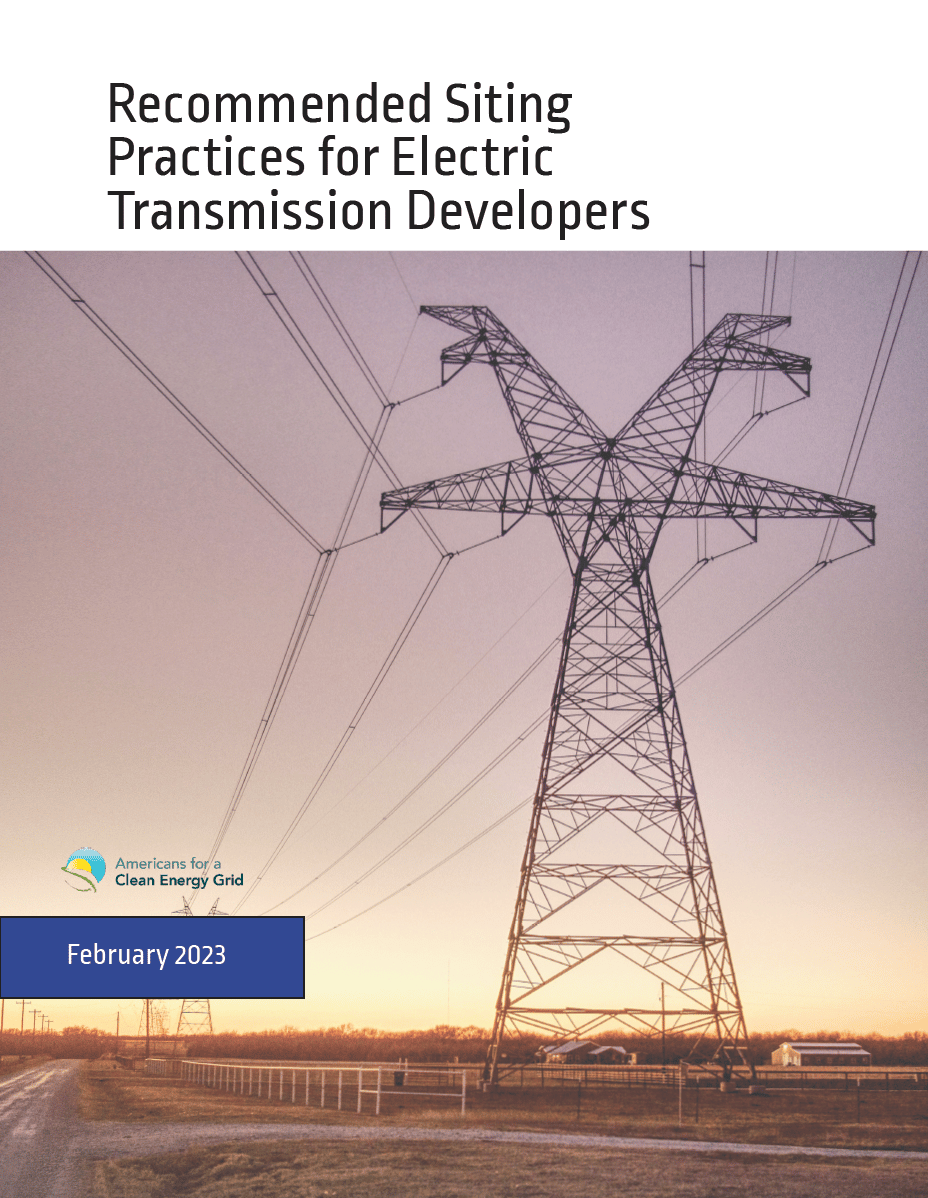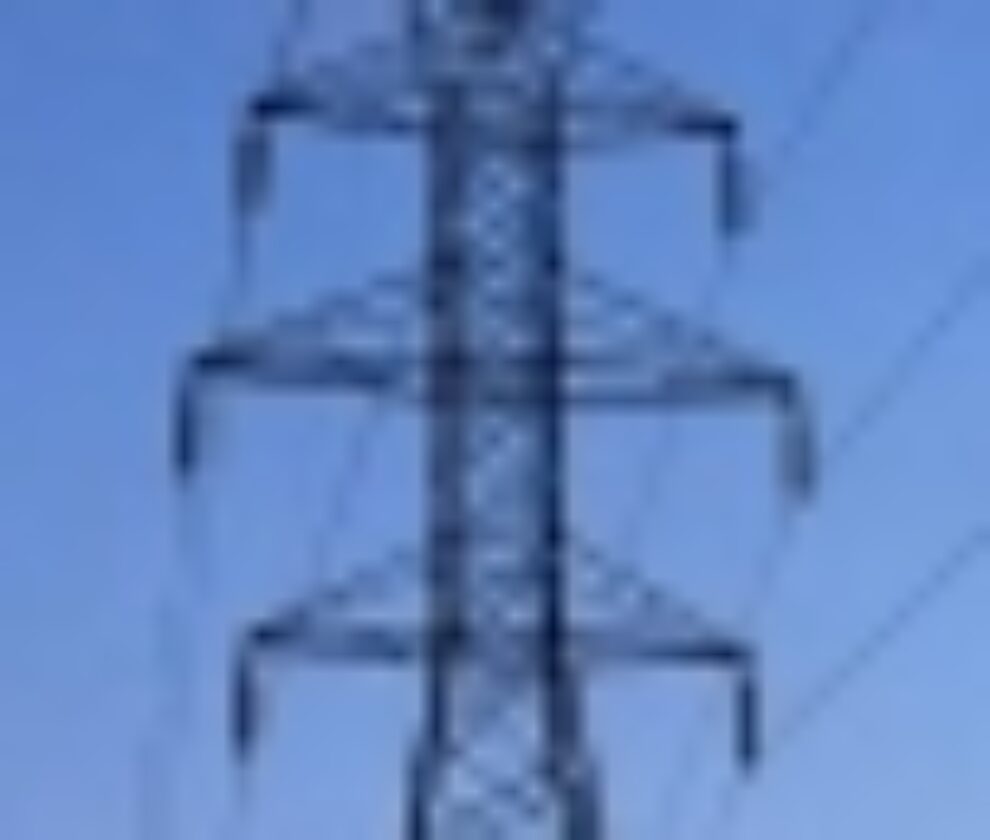Wednesday, June 28 (Washington, D.C.) — A new report from Americans for a Clean Energy Grid evaluates and ranks 10 U.S. regions on the strength of their transmission planning and development efforts. Smart, holistic transmission planning is vital to the future security and reliability of America’s energy system, but planning practices are inconsistent across the country.
“While no region earned a perfect score, many regions are using innovative methods to better plan and develop high-capacity transmission,” said ACEG Executive Director Christina Hayes. “We are pleased to see growing recognition of the need for proactive transmission planning to improve the reliability, resilience, and security of our energy system. Without continued improvement, the U.S. grid will remain a barrier to reaching our climate goals, and result in more dangerous power outages that threaten lives and livelihoods. Every region has the tools to improve, and there’s really no time to waste.”
Many entities are responsible for transmission planning and development, including Regional Transmission Organizations (RTOs), Independent System Operators (ISOs), local utilities, and merchant developers. ACEG’s report card looks at regions as a whole, rather than specific entities.
The largest component of each score is based on the quality of a region’s transmission planning process, with a smaller portion based on the amount of transmission built and planned in recent years; the capacity of the region’s transmission system to connect new resources; and the level of system congestion.
Of the 10 regions evaluated, none earned an A. The Midwest and California both earned a B. These regions use proactive planning methods that evaluate how much transmission it will take to accommodate new clean energy resources and safeguard the grid against extreme weather. ACEG’s report card also highlights the importance of taking a holistic approach to transmission planning, evaluating projects as a portfolio rather than line-by-line and employing “multi-value planning” which helps identify the most efficient lines that will provide many benefits at once.
Multiple studies have shown the U.S. needs to at least double its transmission capacity to accommodate widespread electrification and increased demand for renewables — which are often located far from population centers where the energy is consumed. There is also significant evidence that proactive planning results in major benefits for consumers. Within the Midcontinent Independent System Operator (MISO), an analysis found their holistic transmission plan would result in benefits twice as great as project costs. And on the East Coast, a study found that proactively planning transmission to accommodate expected growth in offshore wind would dramatically reduce the overall cost of grid upgrades needed to get that energy to shore.
The Federal Energy Regulatory Commission has proposed regulations that would require regions to conduct comprehensive transmission planning. This would be a constructive step forward, but that rule has been pending for over a year. Every region — and the transmission owners and operators within them — has the capacity to act now and adopt best practices for transmission planning.
ACEG intends to update this scorecard over time and believes that all regions can earn an A in the coming years.
To learn more, visit https://cleanenergygrid.org/report-card.
Diverse groups stress importance of transmission planning
“For large industrial and commercial stakeholders, ensuring the dependability and affordability of their energy supply to support their operations and expand manufacturing within the U.S. is of utmost importance,” said Karen Onaran, President and CEO of the Electricity Consumers Resource Council. “In this dynamic energy environment, the significance of electric transmission cannot be overstated in supporting both these factors. The ACEG report card serves as a valuable tool to pinpoint regions across the country that facilitate comprehensive transmission planning and provide reliable service, meeting the 24/7 requirements of industrial consumers while fostering sustained economic growth.”
“Expanding and strengthening our electric grid is vital to America’s energy future,” said Michael Skelly, CEO of Grid United. “Grid United is proud to be advancing development of needed transmission in the West, and we look forward to working with Western planners to improve processes for additional lines that will bring us closer to the reliable electric grid that all Americans deserve.”
“Effective transmission planning is essential to delivering low-cost and reliable clean power when, and where, it’s most needed,” said Beth Soholt, Executive Director of the Clean Grid Alliance. “MISO’s monumental approval of 18 new transmission lines — the largest package in the nation — helped it to earn the highest score in ACEG’s report, and made clear that proactive, holistic planning is necessary to identify the best solutions for the region. But building a stronger grid is a long-term commitment, and there is still much more to do both in MISO and throughout the country to ensure all Americans can depend on reliable electricity every day of the year.
“The entire country is impacted by extreme weather and a changing energy mix,” said Andy Kowalczyk, Transmission Director for the Southern Renewable Energy Association. Some regions are more proactive than others, and at a time like this, it’s vital that we look at what’s working, and what isn’t, so that there’s accountability and forward momentum in planning for a reliable clean energy future.”
“ACEG’s report card highlights how traditional regional transmission planning, which is focused on short-term reliability, struggles to meet the long-term needs of the evolving grid,” said Robin Arnold, Markets & Transmission Director for Renewable Northwest. “Particularly in non-RTO regions such as the Northwest, regional planning has failed to proactively identify large-scale transmission lines that would ease the interconnection queue backlog and help to reduce the overall energy costs in the region by accessing geographic diversity and integrating zero carbon resources.”
“ACEG’s report card highlights exactly why greater collaboration and major transmission planning improvements are needed in our region,” said Vijay Satyal, Deputy Director of Regional Energy Markets for Western Resource Advocates. “We’re glad that a number of significant transmission lines have started to break ground, but we need sustained commitment from everyone in the West (regionally and locally) to proactively build a grid that will improve electric reliability and deliver low-cost renewable resources to communities in an environmentally sustainable way.”
###
About Americans for a Clean Energy Grid:
Americans for a Clean Energy Grid (ACEG) is a non-profit, broad-based public interest advocacy coalition focused on the need to expand, integrate, and modernize the North American high-capacity grid. ACEG brings together a diverse coalition — including business, labor, consumer, environmental groups, and other transmission supporters — to advocate for policies that recognize the benefits of a robust transmission grid. For more information, please visit cleanenergygrid.org.
Media Contact:
Hannah Schuster, Communications Associate
hannah@dgardiner.com | 703-298-2339



